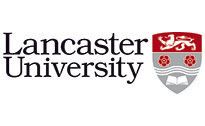
Urban Futures and Smart Cities
Course ID: 2512290101427ESH
Course Dates : 29/12/25 Course Duration : 5 Studying Day/s Course Location: London, UK
Language: Bilingual
Course Category: Professional and CPD Training Programs
Course Subcategories: Operations and Process Excellence
Course Certified By: ESHub CPD & LondonUni - Executive Management Training
* Professional Training and CPD Programs
Leading to:
Executive Diploma Certificate
Leading to:
Executive Mini Masters Certificate
Leading to
Executive Masters Certificate
Certification Will Be Issued From :
From London, United Kingdom
Course Information
Introduction
The rapid urbanization of the 21st century presents both unprecedented opportunities and formidable challenges for cities worldwide. With over half of the global population now residing in urban areas, cities are at the forefront of addressing critical issues such as sustainability, resource management, and equitable access to services. The concept of "Smart Cities" has emerged as a transformative approach to urban development, leveraging technology, data, and innovation to enhance livability, workability, and sustainability. This course, Urban Futures and Smart Cities , delves into the intersection of urban planning, digital transformation, and sustainable development, offering participants a comprehensive understanding of how to design and manage cities that are resilient, inclusive, and future-ready.
Despite the growing emphasis on smart city initiatives, many urban planners, policymakers, and industry professionals face significant gaps in knowledge and practice. These include insufficient integration of technological solutions with social and environmental goals, fragmented governance structures, and limited public engagement strategies. Such challenges hinder the ability of cities to achieve their full potential as hubs of innovation and progress. Drawing from frameworks such as the United Nations Sustainable Development Goals (SDGs) and the Smart City Maturity Model, this course addresses these gaps by equipping participants with the tools and insights necessary to navigate the complexities of modern urbanization.
The relevance of this course extends beyond theoretical understanding; it is deeply rooted in practical application. For instance, Barcelona’s implementation of IoT-enabled waste management systems has not only reduced operational costs but also improved citizen satisfaction. Similarly, Singapore’s Smart Nation initiative exemplifies how integrated data platforms can enhance urban mobility and energy efficiency. By examining real-world case studies like these, participants will gain actionable insights into how smart city principles can be tailored to diverse contexts, from burgeoning metropolises to smaller municipalities striving for sustainability.
Mastering the content of this course offers substantial benefits for both individuals and organizations. Professionals who complete the program will be better positioned to lead transformative urban projects, secure funding for innovative initiatives, and foster cross-sector collaborations. Organizations, on the other hand, stand to gain a competitive edge by aligning their strategies with emerging trends in urban development. Moreover, as governments increasingly prioritize smart city investments, the demand for skilled practitioners in this field continues to grow, making this course a valuable asset for career advancement.
A key strength of this course lies in its interdisciplinary approach, drawing on fields such as urban planning, information technology, environmental science, and public policy. Participants will explore established theories, such as Jane Jacobs’ principles of vibrant neighborhoods and Geoffrey West’s scaling laws for cities, alongside cutting-edge innovations like AI-driven traffic management systems and blockchain-based civic engagement platforms. This synthesis of traditional wisdom and contemporary advancements ensures that learners develop a holistic perspective on urban futures.
Ultimately, Urban Futures and Smart Cities is more than just a training program—it is an opportunity to shape the future of urban living. Whether you are an urban planner seeking to incorporate smart technologies into your designs or a policymaker aiming to create inclusive digital ecosystems, this course provides the knowledge and skills needed to make a meaningful impact. By fostering collaboration among diverse stakeholders and emphasizing evidence-based decision-making, the program empowers participants to contribute to the creation of cities that are not only smarter but also more humane and sustainable.
Objectives
By attending this course, participants will be able to:
Analyze the core principles of smart city development and their alignment with global sustainability frameworks.
Evaluate the role of emerging technologies, such as IoT, AI, and big data, in enhancing urban infrastructure and services.
Design inclusive and participatory approaches to urban planning that prioritize equity and community engagement.
Implement strategies for integrating renewable energy solutions and circular economy practices into urban systems.
Apply best practices in cybersecurity and data privacy to ensure the ethical use of smart city technologies.
Assess the financial and regulatory frameworks required to support long-term smart city initiatives.
Synthesize lessons from international case studies to propose context-specific urban innovation strategies.
Who Should Attend?
This course is ideal for:
Urban planners, architects, and engineers involved in designing and managing urban infrastructure.
Government officials and policymakers responsible for implementing smart city projects.
IT professionals and data scientists working on urban analytics and digital transformation initiatives.
Sustainability consultants and environmental specialists focused on green urban development.
Academics and researchers studying urban futures and smart technologies.
These groups will find the course invaluable as it bridges the gap between theory and practice, providing actionable insights into the latest trends and tools in urban development. While prior experience in urban planning or technology is beneficial, the course is designed to accommodate intermediate learners who have a foundational understanding of either urban systems or digital technologies. Advanced practitioners seeking to deepen their expertise will also find the material enriching.
Training Method
• Pre-assessment
• Live group instruction
• Use of real-world examples, case studies and exercises
• Interactive participation and discussion
• Power point presentation, LCD and flip chart
• Group activities and tests
• Each participant receives a 7” Tablet containing a copy of the presentation, slides and handouts
• Post-assessment
Program Support
This program is supported by:
* Interactive discussions
* Role-play
* Case studies and highlight the techniques available to the participants.
Daily Agenda
Daily Schedule (Monday to Friday)
- 09:00 AM – 10:30 AM Technical Session 1
- 10:30 AM – 12:00 PM Technical Session 2
- 12:00 PM – 01:00 PM Technical Session 3
- 01:00 PM – 02:00 PM Lunch Break (If Applicable)
- Participants are expected to engage in guided self-study, reading, or personal reflection on the day’s content. This contributes toward the CPD accreditation and deepens conceptual understanding.
- 02:00 PM – 04:00 PM Self-Study & Reflection
Please Note:
- All training sessions are conducted from Monday to Friday, following the standard working week observed in the United Kingdom and European Union. Saturday and Sunday are official weekends and are not counted as part of the course duration.
- Coffee and refreshments are available on a floating basis throughout the morning. Participants may help themselves at their convenience to ensure an uninterrupted learning experience Provided if applicable and subject to course delivery arrangements.
- Lunch Provided if applicable and subject to course delivery arrangements.
Course Outlines
Foundations of Smart Cities
Overview of urbanization trends and their implications for future cities.
Key components of a smart city: Technology, governance, and society.
Introduction to the Smart City Maturity Model and its applications.
Case study: Barcelona’s IoT-driven urban transformation.
Day 2:
Technological Innovations in Urban Systems
Role of IoT, AI, and big data in smart city infrastructure.
Smart mobility solutions: Autonomous vehicles and intelligent transit systems.
Energy-efficient buildings and smart grids.
Workshop: Designing a tech-enabled urban service.
Day 3:
Sustainability and Resilience
Principles of sustainable urban development and the SDGs.
Circular economy practices in urban resource management.
Climate resilience strategies for cities.
Case study: Copenhagen’s journey toward carbon neutrality.
Day 4:
Governance and Community Engagement
Models of participatory governance in smart cities.
Strategies for fostering citizen engagement and co-creation.
Ethical considerations in data collection and usage.
Group activity: Developing a community-focused urban plan.
Day 5:
Financing and Implementation
Financial models for smart city projects: Public-private partnerships.
Regulatory frameworks and compliance requirements.
Measuring success: Metrics and KPIs for smart city initiatives.
Panel discussion: Lessons learned from global smart city leaders.



















































